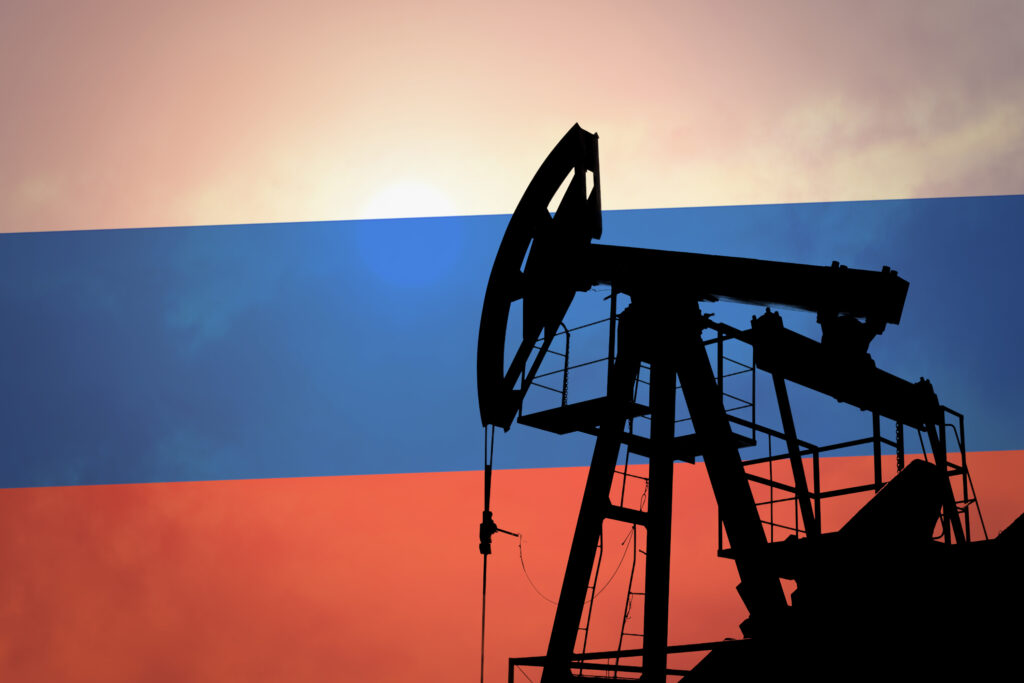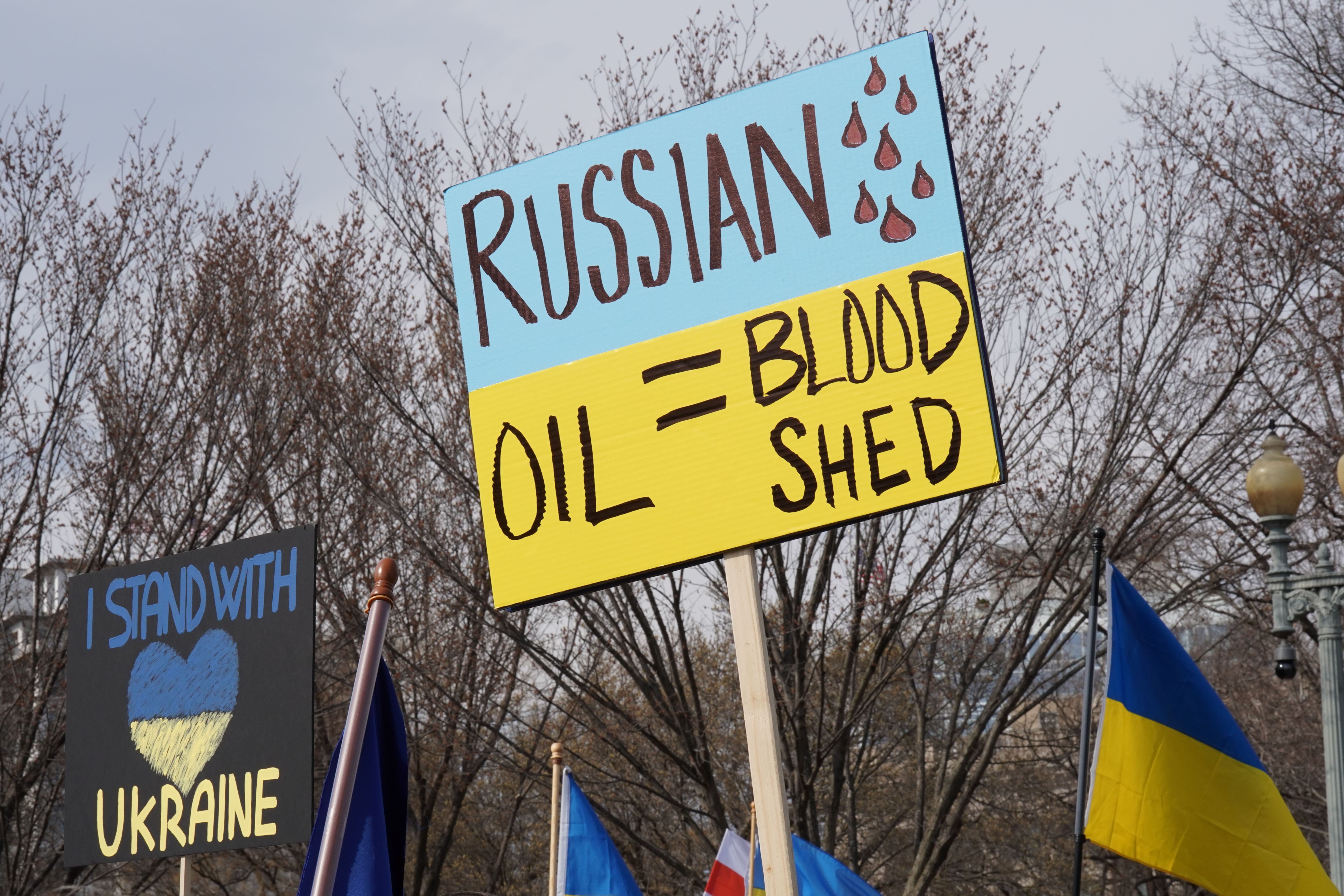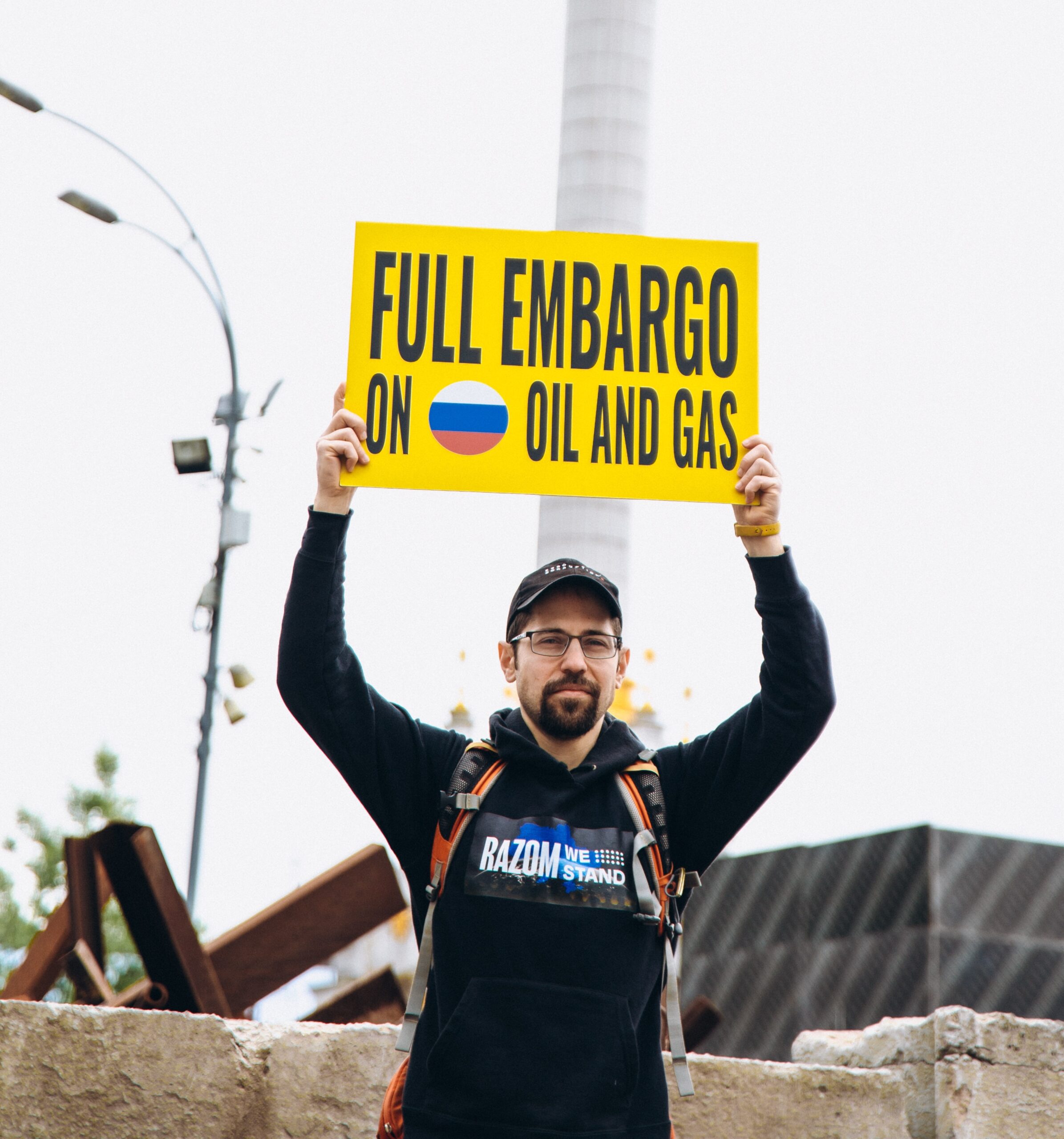Russia’s illegal invasion of Ukraine in February 2022 marked a pivotal moment in history and international risk. The assault, orchestrated by President Putin, swiftly escalated into the largest European conflict since World War II, with the legacy of that dark period in which 50 million lives catapulted from our collective memory to the present. On the international stage, the war abruptly shattered the post-Cold War era’s nuclear apathy, a relief that had persisted for decades. Furthermore, as Russian troops commit extensive human rights abuses, it becomes clear that a painful and lasting humanitarian legacy awaits.
While the world has rightfully focused on the immense human toll of the war, another critical dimension can be unveiled by viewing Russia’s invasion through an economic lens. Through this perspective, it is possible to reframe the war as a pivotal moment for the relationship between the global economy and ethical risk.
Sanctions: A Growing Risk for Hostile Regimes

Central to the Kremlin’s disruption of the global economy is Russia’s newfound status as the most heavily sanctioned nation in the world, a position formerly held by Iran. In this week’s episode of The International Risk Podcast, Owais Arshad, Director of Sanctions Advisory at the Royal Bank of Canada, dissects how economic sanctions have become an increasingly favored tool of punishment against regimes deemed objectionable by Western powers since the 9/11 attacks.
One of the most renowned examples dates back to 1962 when the United States imposed sanctions on Cuba in response to the Cuban revolution—a contested embargo that endures to this day. North Korea, apartheid-era South Africa, Somalia, Iran, and, more recently, Afghanistan, are among the regimes that have faced similar sanctions. The message conveyed by economic sanctions is clear: deviate from the liberal world order, and risk your national economy.
Given the oil industries’ status as the lynchpin of Russia’s economy, it was unsurprising that Western nations quickly united to impose sanctions on Russia’s oil sector in the wake of Russia’s invasion. If global trade in oil continued unchecked, the risk to international security was widely considered untenable. In a concerted effort to mitigate this risk, the Biden administration banned the purchase of crude oil and petroleum products from Russia in March 2022, a move soon echoed by the European Union, which imposed a ban on Russian crude oil and petroleum during the winter of 2022/23. By early 2023, it appeared that the global community would not tolerate the security threat posed by Russia’s military aggression.
The CREA Report: Exposing Non-Compliance
However, in April the Finnish Centre for Research on Energy and Clean Air (CREA) released a report exposing significant gaps in the West’s economic risk mitigation strategy. The CREA’s findings are damning of the US and EU for utilizing so-called ‘laundromat’ countries to circumvent their governments’ imposed sanctions. The report reveals that, while the EU, most G7 countries, and Australia have ostensibly complied with sanctions by substantially reducing their direct imports of crude oil and oil products from Russia, they have simultaneously increased imports of refined oil products from intermediary nations. These intermediary countries include China, India, Turkey, the UAE, and Singapore, all of which have augmented their imports of Russian crude oil since the invasion. By early 2023, well after the formal imposition of economic sanctions by the US and EU, these nations had increased their imports of refined oil products from these intermediary countries by 10 million tonnes, valued at 42 billion Euros, according to the CREA.
While this refining ‘loophole’ may be legal, the ethical and security risks posed by the West’s actions are substantial. As Oleh Savytskyi, Campaign Director at Kyiv-based Razom We Stand, emphasized in this week’s episode of The International Risk Podcast, Western importation of refined Russian oil is, counter to the goal of sanctions, directly financing the Kremlin’s war chest, thus actively prolonging the conflict. In July, Bloomberg reported that Russia earned $15.3 billion from crude oil exports in just one month—an fund that is supplying Russia with a toolkit of violence, rape, and displacement. The West’s complicity in circumventing sanctions on Russia’s oil industry not only tarnishes its reputation but also escalates the existential risk posed by nuclear weapons as Putin’s ambitions become increasingly emboldened by the ongoing war.

Secondary and Tertiary Risks
If the consequences of bypassing sanctions are so grave, and the international risks so large, why does the West continue to exploit the loophole? The answer lies in the concept of secondary and tertiary risks, consequent negative outcomes that are triggered by actions originally intended to mitigate risk. Comprehensive sanctions on Russian oil raise the possibility of at least two such risks, both of which US and EU governments are determined to avert.
The first, as noted by Tom Kloza, Global Head of Energy Analysis at the Oil Price Information Service, involves the economic ramifications of a complete ban on Russian-sourced oil products for consumers in the US and EU. The current loophole permits intermediary countries to supply gasoline and diesel to consumers, with approximately one in twenty UK flights also relying on Russian-sourced oil. With elections looming in both the US and the UK, governments appear unwilling to risk potential price increases for voters. Additionally, Western nations appear reluctant to jeopardize their relationships with “laundromat” nations, such as India, which serve as strategic allies against the increasingly assertive China.
Moving Forward: Should the West Prioritize Ethics or the Economy?

One thing is abundantly clear: the West’s noncompliance with its own sanctions raises profound questions about the role of ethics in the global economy and the international risks that non-compliance brings. Should governments restrict trade and risk further consequences simply to signal that another country has crossed an ethical line?
In the case of Russian oil, the answer unequivocally is yes. A closer examination of the numbers reveals that concerns about rising gas prices for US and EU consumers are largely unfounded and thus are likely driven primarily by electoral considerations.
As Oleh Savytskyi aptly pointed out, Russian-origin oil products entering the US constitute a negligible fraction of oil product imports, at most accounting for just one-third. Consequently, cutting off this supply is unlikely to lead to significant consumer hardships, especially if accompanied by long-overdue efforts to diversify away from oil dependency.
Furthermore, even if the economic risks to individual consumers are greater, the humanitarian and security risks far outweigh any temporary spike in prices at the pump. Russia’s invasion has ushered in a defining moment in history, questioning the West’s commitment to democratic values. The US and EU must not be complicit in the suffering, torture, and displacement of millions of European citizens, nor can they stand idly by as the specter of nuclear war becomes normalized. They must refrain from placing blame on “laundromat” countries whose economies were once exploited by the West and thus justifiably feel no loyalty to Western “ethics.” It is incumbent upon a robust Western economy to uphold its commitments to liberty, democracy, and peace, even if doing so temporarily risks inconveniencing consumers and strategic partners.
Let us know in the comments which of their posts has resonated with you the most.